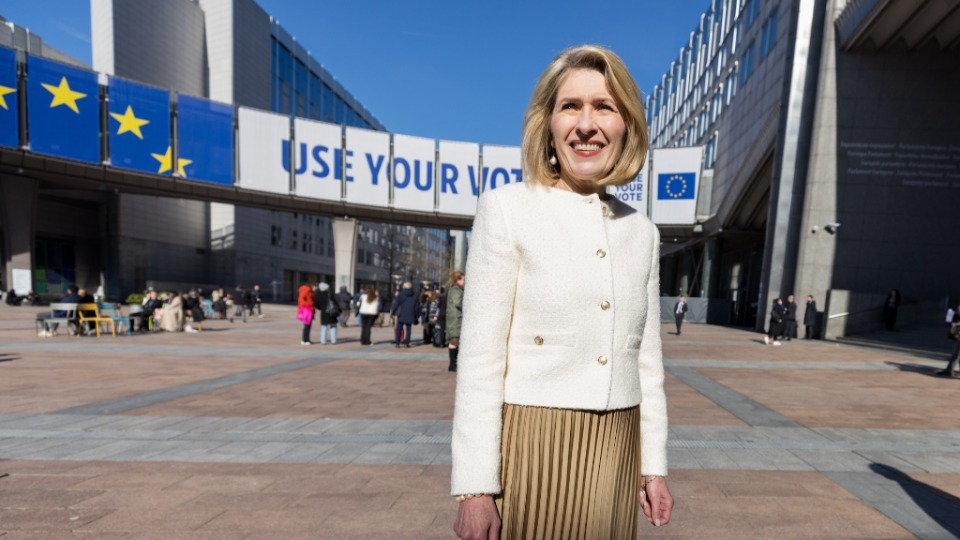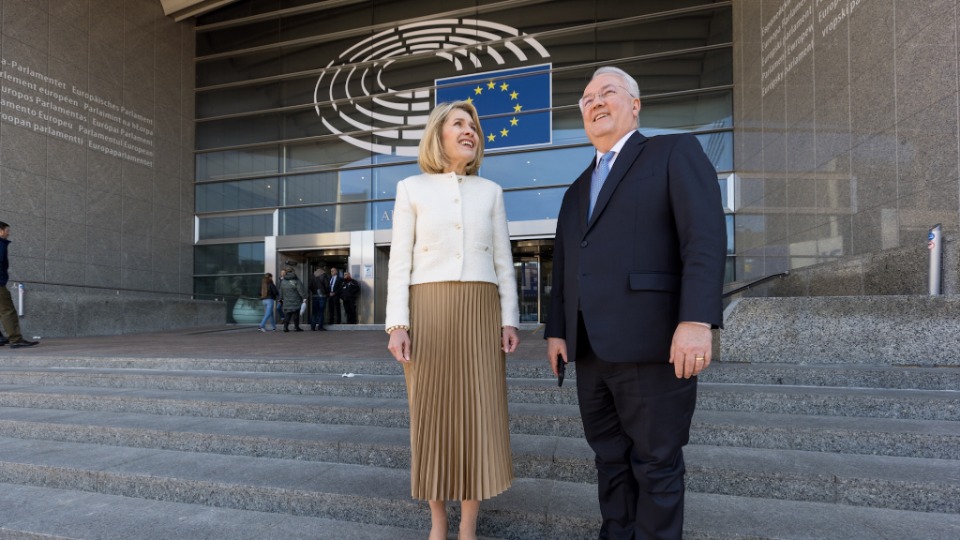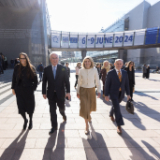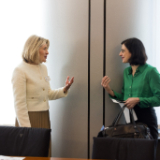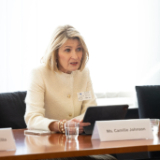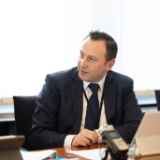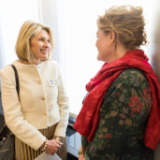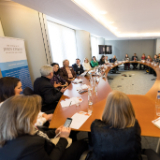Sister Camille N. Johnson, the Relief Society General President of The Church of Jesus Christ of Latter-day Saints, addressed the European Union Parliament on March 4th, 2024, in Brussels, Belgium. She spoke on the topic “Empowering Women’s Freedom of Religion or Belief”, and shared her personal experiences and insights on how women of faith can contribute to a more just and inclusive society.
The event was hosted by Ms. Anja Haga, a member of the European Parliament, in partnership with the EU & International Affairs Office of the Church in Brussels. The presentations covered the different perspectives around freedom of religion and belief and included two panel discussions where personal stories were shared. The event coincided with the International Women's Day, which is celebrated on March 8th every year to recognize the achievements and challenges of women around the world.
| Sister Camille N. Johnson, General President of the Relief Society of The Church of Jesus Christ of Latter-day Saints prepares to enter the EU Parliament in Brussels, on 4 March 2024. 2024 by Intellectual Reserve, Inc. All rights reserved. | 1 / 8 |
Sister Johnson started her intervention by declaring the unique role women play in in society, by being natural leaders, teachers, nurturers healers and peacemakers. If freedom of religion or belief is not protected, this role is not completely fulfilled.
“Social scientists have shown that to the extent societies and governments restrict religious freedoms, social conflict increases. Such conflict and ensuing violence always harm the most vulnerable, including women and children. It destabilizes economies and households. It increases inequality, including gender inequality. And it keeps women from using their innate gifts to cultivate peace”, she said.
She mentioned that if ordinary women are to accomplish their unique daily peacemaking roles, they themselves need to be inspired, nurtured, healed, empowered, and taught about their divine potential. Women “must be able to live according to their highest aspirations and values, and to gather, share, and organize for mutual support. This, of course, is what robust freedom of religion and belief affords – the assurance to women, men, and children that they can live conscientious moral lives with mutual support of fellow believers while affording that same dignity to their neighbors,” she declared.
The first panel discussion centered on the resilience of women around the world and their stories in the pursuit of freedom of religion and belief. Speakers included Rachel Bayani, representing the Bahá’í International Community, Helene Fisher, advocacy officer for Gender and Religious Freedom and Anastasia Hartman, representing Open Doors International.
The second panel focused on presenting strategies and solutions to promote women’s rights withing the context of freedom of religion or belief. Carolyn Handschin, President of the NGO Committee on the Status of Women in Geneva, offered insights of the contribution of civil society organization within the framework of the United Nations. Susan Kerr, Senior Advisor on Freedom of Religion of Belief from the OSCE’s Office for Democratic Institutions and Human Rights shared the importance of the security component in the exercise of one’s freedom of religion.
Francesco Di Lillo, Director of the Church’s EU and International Affairs Office in Brussels, who moderated the panel, hopes that “this event will spark more dialogue and collaboration among religious and political leaders, as well as civil society, to promote and protect the religious freedom of women around the world.”
The host of the event, Ms. Anja Haga, at its conclusion, said that “if we want peace, we have to stand for freedom of religion. And you have to fight to freedom of religion for women. That’s how you establish peace in the world”.
The day concluded with a dinner with women ambassadors and leaders from civil society organizations, furthering dialogue on the perspectives of religious freedom and how this fundamental right can lead to more just societies.
